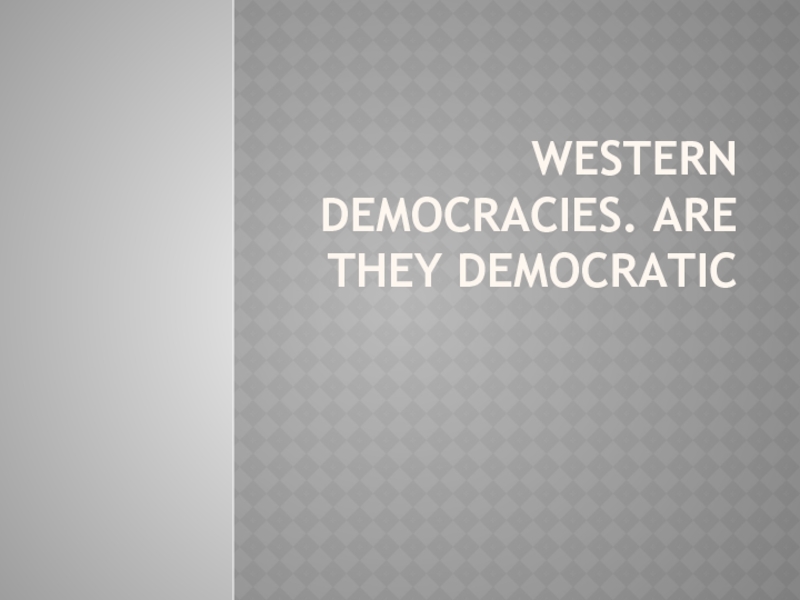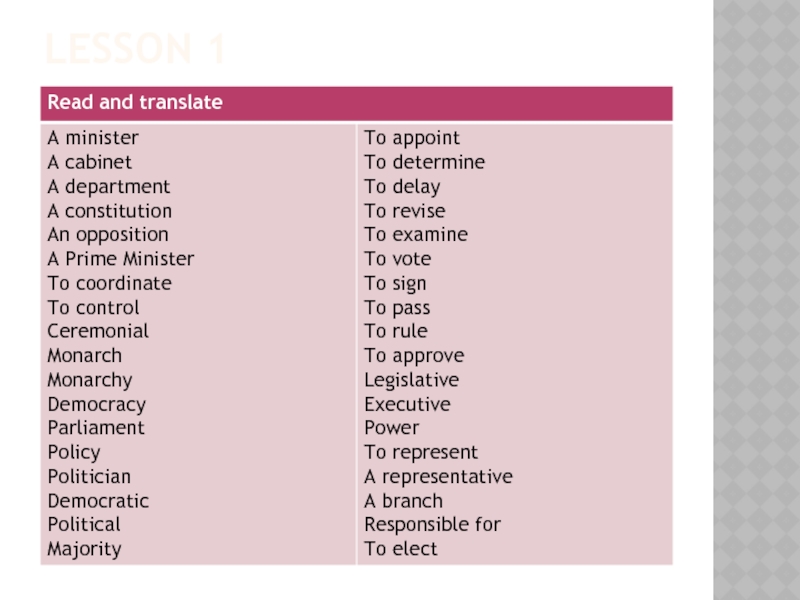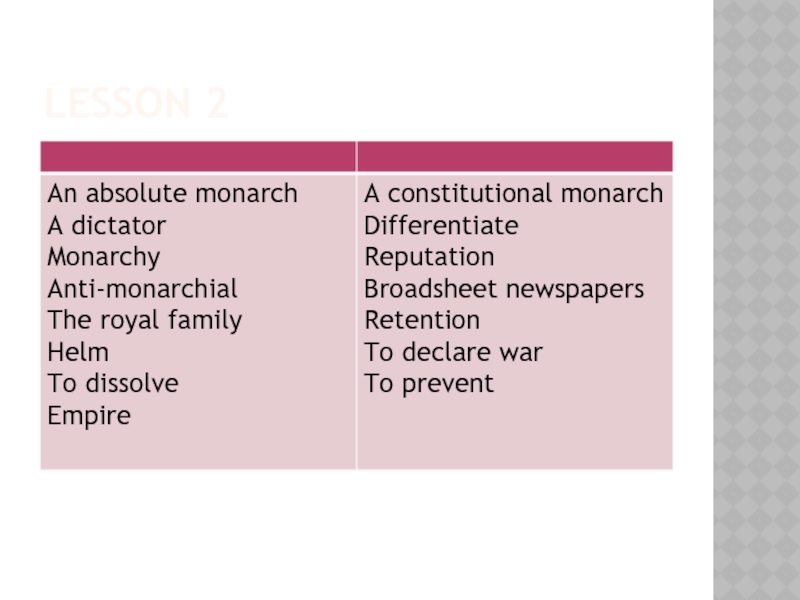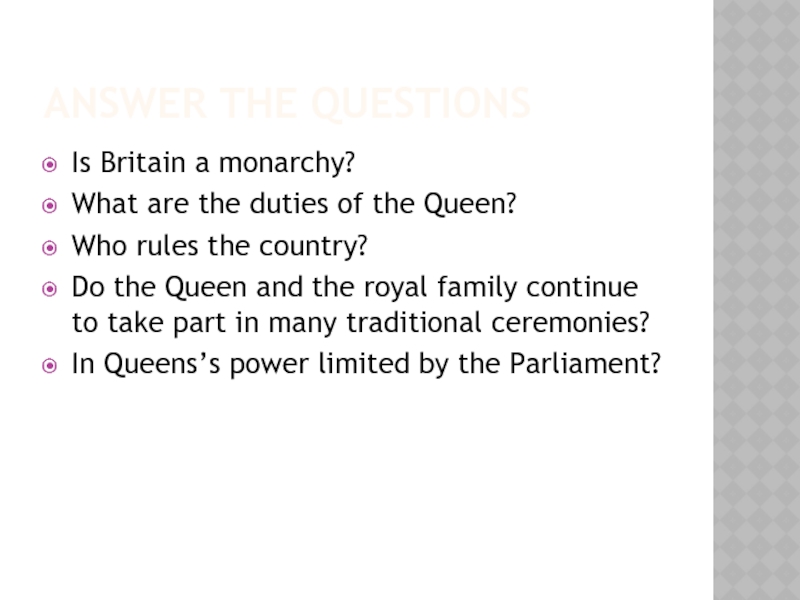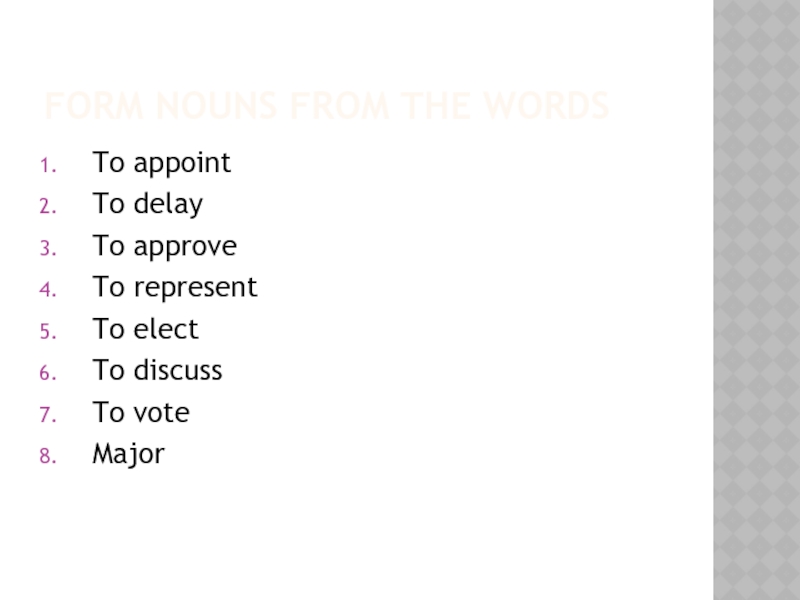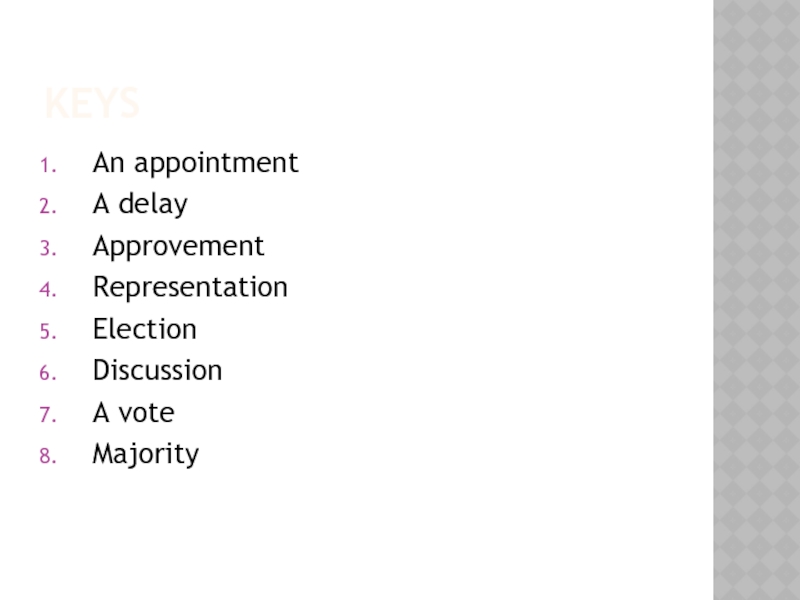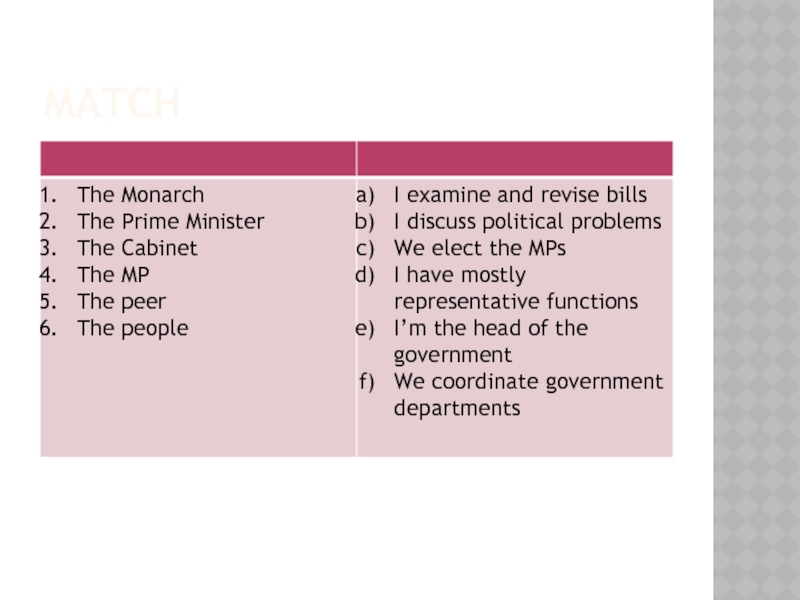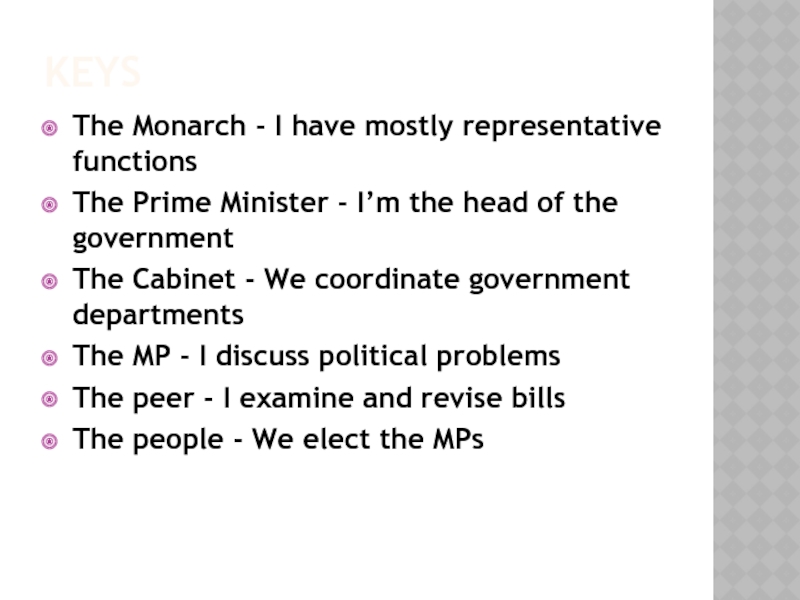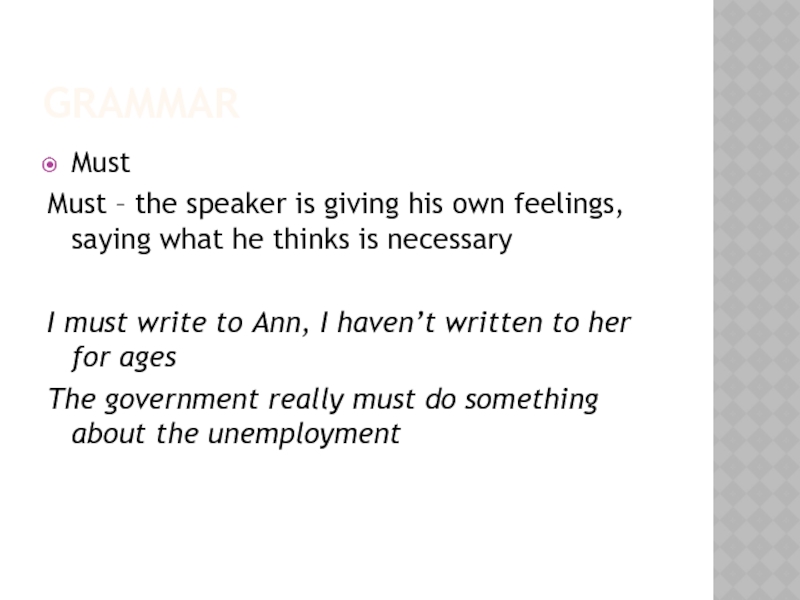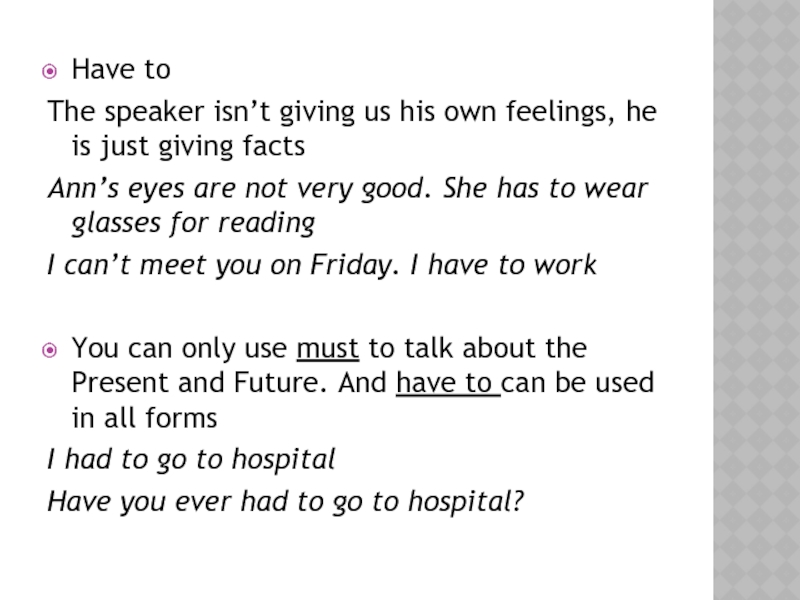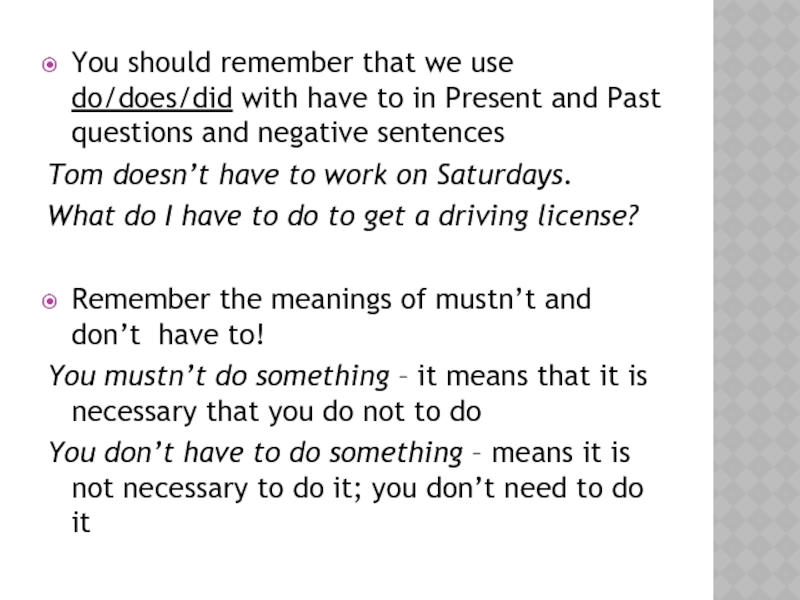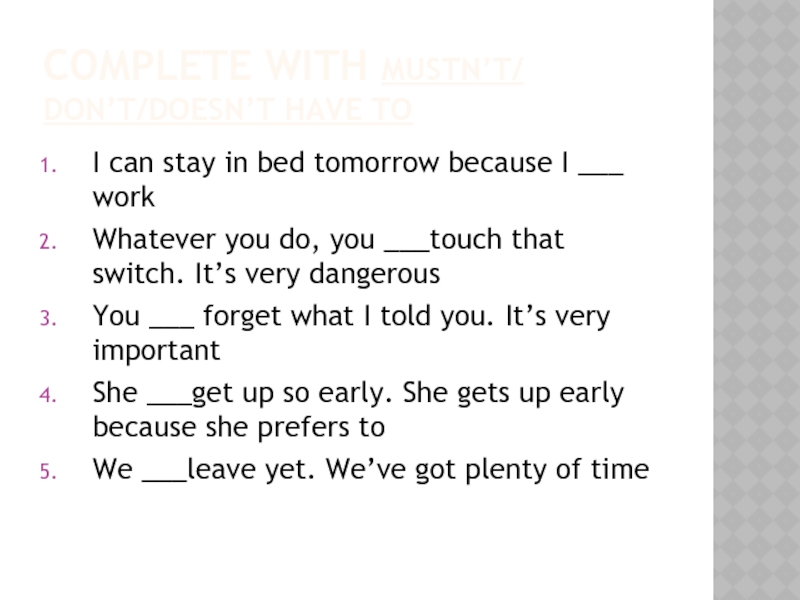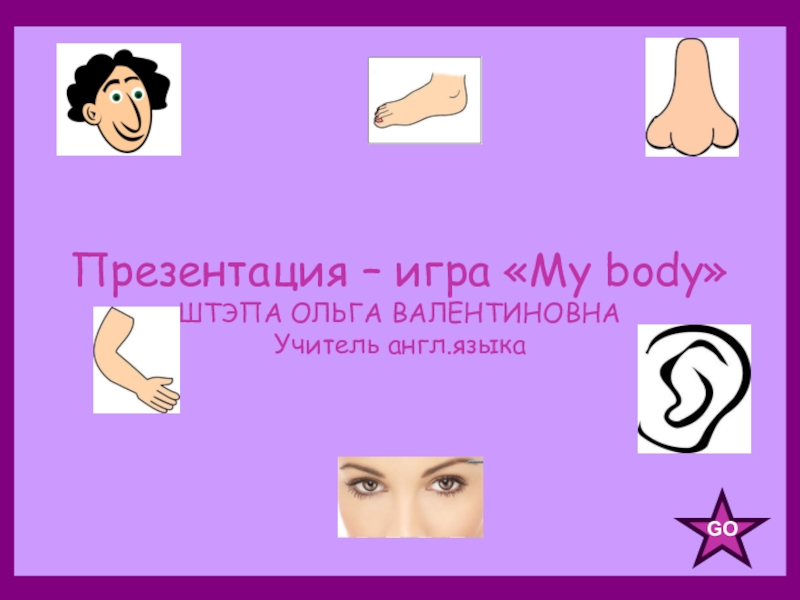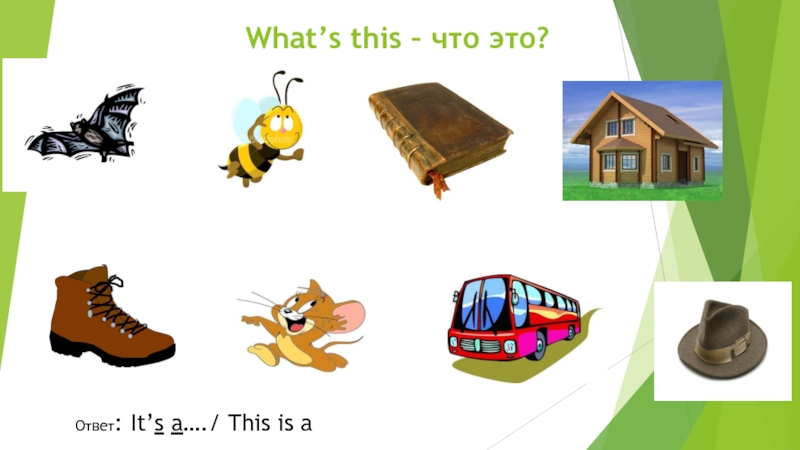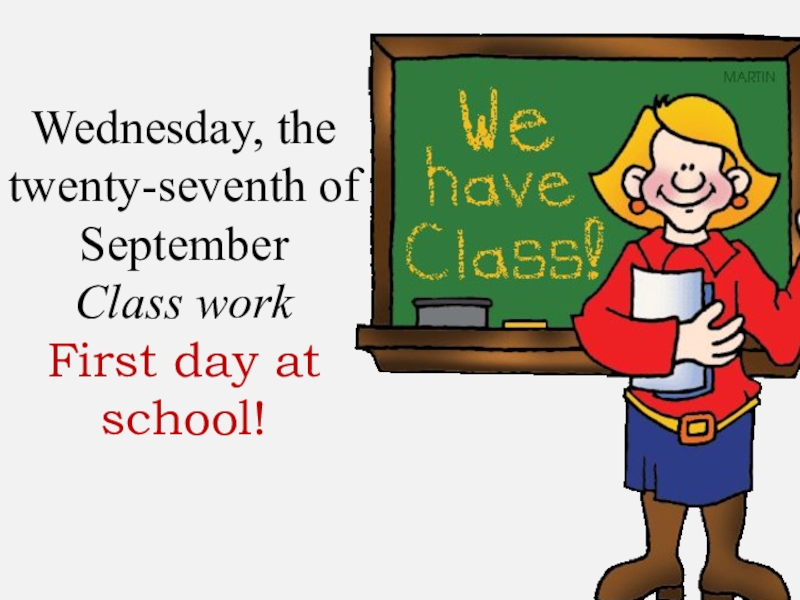- Главная
- Разное
- Образование
- Спорт
- Естествознание
- Природоведение
- Религиоведение
- Французский язык
- Черчение
- Английский язык
- Астрономия
- Алгебра
- Биология
- География
- Геометрия
- Детские презентации
- Информатика
- История
- Литература
- Математика
- Музыка
- МХК
- Немецкий язык
- ОБЖ
- Обществознание
- Окружающий мир
- Педагогика
- Русский язык
- Технология
- Физика
- Философия
- Химия
- Шаблоны, фоны, картинки для презентаций
- Экология
- Экономика
Презентация, доклад по английскому языку на тему Western Democracies 10 класс
Содержание
- 1. Презентация по английскому языку на тему Western Democracies 10 класс
- 2. Lesson 1
- 3. Lesson 2
- 4. Answer the questionsIs Britain a monarchy?What are
- 5. Form nouns from the words To appointTo delayTo approveTo representTo electTo discussTo voteMajor
- 6. keysAn appointmentA delayApprovementRepresentationElectionDiscussionA voteMajority
- 7. match
- 8. KeysThe Monarch - I have mostly representative
- 9. GrammarMustMust – the speaker is giving his
- 10. Have toThe speaker isn’t giving us his
- 11. You should remember that we use do/does/did
- 12. Complete with mustn’t/ don’t/doesn’t have toI can
Lesson 1
Слайд 4Answer the questions
Is Britain a monarchy?
What are the duties of the
Queen?
Who rules the country?
Do the Queen and the royal family continue to take part in many traditional ceremonies?
In Queens’s power limited by the Parliament?
Who rules the country?
Do the Queen and the royal family continue to take part in many traditional ceremonies?
In Queens’s power limited by the Parliament?
Слайд 5Form nouns from the words
To appoint
To delay
To approve
To represent
To elect
To
discuss
To vote
Major
To vote
Major
Слайд 8Keys
The Monarch - I have mostly representative functions
The Prime Minister -
I’m the head of the government
The Cabinet - We coordinate government departments
The MP - I discuss political problems
The peer - I examine and revise bills
The people - We elect the MPs
The Cabinet - We coordinate government departments
The MP - I discuss political problems
The peer - I examine and revise bills
The people - We elect the MPs
Слайд 9Grammar
Must
Must – the speaker is giving his own feelings, saying what
he thinks is necessary
I must write to Ann, I haven’t written to her for ages
The government really must do something about the unemployment
I must write to Ann, I haven’t written to her for ages
The government really must do something about the unemployment
Слайд 10Have to
The speaker isn’t giving us his own feelings, he is
just giving facts
Ann’s eyes are not very good. She has to wear glasses for reading
I can’t meet you on Friday. I have to work
You can only use must to talk about the Present and Future. And have to can be used in all forms
I had to go to hospital
Have you ever had to go to hospital?
Ann’s eyes are not very good. She has to wear glasses for reading
I can’t meet you on Friday. I have to work
You can only use must to talk about the Present and Future. And have to can be used in all forms
I had to go to hospital
Have you ever had to go to hospital?
Слайд 11You should remember that we use do/does/did with have to in
Present and Past questions and negative sentences
Tom doesn’t have to work on Saturdays.
What do I have to do to get a driving license?
Remember the meanings of mustn’t and don’t have to!
You mustn’t do something – it means that it is necessary that you do not to do
You don’t have to do something – means it is not necessary to do it; you don’t need to do it
Tom doesn’t have to work on Saturdays.
What do I have to do to get a driving license?
Remember the meanings of mustn’t and don’t have to!
You mustn’t do something – it means that it is necessary that you do not to do
You don’t have to do something – means it is not necessary to do it; you don’t need to do it
Слайд 12Complete with mustn’t/ don’t/doesn’t have to
I can stay in bed tomorrow
because I ___ work
Whatever you do, you ___touch that switch. It’s very dangerous
You ___ forget what I told you. It’s very important
She ___get up so early. She gets up early because she prefers to
We ___leave yet. We’ve got plenty of time
Whatever you do, you ___touch that switch. It’s very dangerous
You ___ forget what I told you. It’s very important
She ___get up so early. She gets up early because she prefers to
We ___leave yet. We’ve got plenty of time
